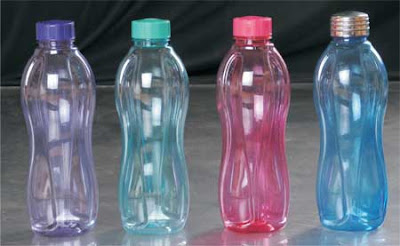367
In our day-to-day lives, we exercise extreme caution when it comes to drinking water. Water is treated at multiple points before it reaches your tap and even at home, we tend to use water purifiers that promise to kill 99.99% bacteria, viruses(?) and any other pathogen that might infect you. But have you ever wondered, how safe is the bottle that we store the water in?
Multiple studies conducted have shown that the regular colourful fridge bottles, often made from polycarbonate (marked with a recycling code, 7) leaches Bisphenol A (BPA) into the water. BPA is the monomer that makes the polycarbonate plastic and hot or warm fluids usually result in depolymerization and release of BPA. This released chemical is very similar to estrogen and is capable of copying its function too. The Tolerable Daily Intake for BPA is 0.05 mg per kilogram of body weight per day. While this might be huge as compared to how much BPA actually leaches out, BPA has been associated with breast and uterine cancer in women, low testosterone levels in men and resistance to insulin in infants. Unfortunately, most plastic bottles used for babies contain BPA as their building unit. Therefore, Europe and US, have banned baby products made of plastic that contained BPA. However, other countries are yet to take action on such products.
Coming back to fridge bottles, it is often a tendency to reuse bottles used to sell packaged drinking water/ aerated beverages. Made out of Polyethylene Terepthalate or PET, these bottles are recommended for one time use only. Unconfirmed studies have revealed that reusing PET bottles leaches a compound called DEHA (dihydroxyethylamine), which did cause a scare for a while.
While low density and high density polyethylene (HDPE/LDPE) bottles are available in the markets and have no reports of leaching chemicals into the water they store, awareness about their availability and safe-use is quite minimal. Stainless steel bottles are becoming quite common these days amongst people on the move. One must however, be absolutely sure that their inside walls have not been epoxy (a type of plastic again) treated before using them as a substitute for plastic bottles.
With so many things to worry about, a glass bottle or an earthen pot is probably the safest bet when it comes to storing water. Takes you back to childhood, doesn’t it?
Sources:





1 comment
An enormous round of applause, continue the great work.
clearwaterarizona.com